Luis Almagro
Secretary General, Organization of American States
Conference organized by the Forum 2000 Foundation
March 29–30, 2017, Mexico City, Mexico
The main topics of the conference included the current developments in the Latin American region, the unfolding events in Venezuela, the ongoing political and institutional crisis in Brazil and the applicability of the Inter-American Democratic Charter. Several high-profile democrats and experts, such as the Organization of American States (OAS) Secretary General Luis Almagro, Nobel Peace Prize Laureate Oscar Arias Sánchez, former President of Uruguay Luis Alberto Lacalle or former President of Bolivia Jorge Quiroga gathered to discuss what lies ahead for Latin American democracy.
Following the success of last year's conference in San José, Costa Rica, Forum 2000 organized the second edition of the Democratic Solidarity in Latin America meeting in Mexico City.
The event consisted of a full day private working meeting of politicians, experts and activists and a public discussion entitled “The Role of Young People in Democracy in Latin America” organized in cooperation with the School of Government and Public Transformation, Tecnológico de Monterrey.
The Public Discussion "The Role of Young People in Democracy in Latin America" organized by Forum 2000 and Tec de Monterrey was attended by more than 250 students. The panel, moderated by the OAS Secretary General Luis Almagro, hosted the Nobel Peace Prize laureate Oscar Arias Sánchez, former President of Bolivia Jorge Quiroga, Venezuelan human rights lawyer Tamara Sujú Roa, Jorge Castañeda, Mexican diplomat and Juan Diego Beltrán González, student of International Relations at Tecnológico de Monterrey. Jakub Klepal, Executive Director of Forum 2000 and Alejandro Poiré Romero, Dean of the Escuela de Ciencias Sociales y Gobierno at Tecnológico de Monterrey, introduced the discussion.
The panelists emphasized the importance of civic participation in a healthy democracy and appealed to young people to be more active and accept their share of responsibility. Despite the fact that politics has a terrible reputation, it is, according to Oscar Arias, the most effective instrument for change. Jorge Castañeda invited young people to embrace a cause, such as human rights or fighting against corruption, and to "get out to the streets". If we become passive, warned Alejandro Poiré, someone else will decide for us. This has been echoed by Hasler Iglesias, a student leader from Venezuela, who pointed out that the consequences of public disinterest in the disastrous management of the Chávez and Maduro government, have come to haunt the citizens of his country in their everyday lives. Furthermore, the actions taken currently by President Maduro and the Supreme Tribunal in Venezuela were condemned by all and considered undemocratic and unconstitutional.
The second half of the panel was dedicated to the active participation of students, who expressed their opinions and concerns regarding the state of democracy in their country as well as their role in the future. Juan Diego Beltrán, the student representative from Tecnológico de Monterrey summarized the students´ position by highlighting the fact that the current generation has grown in an environment of an accelerated and rapid increase in technological change and it is necessary to consolidate oneself as agent of positive change in the present and future time.
The Forum 2000 Conference along with other gatherings takes place in Prague and a number of other cities.
Since 1997 the conference has attracted a wide array of illustrious personalities, Nobel prize laureates, former and current politicians, businessmen, and many others. Their common experience is carrying the weight of responsibility.
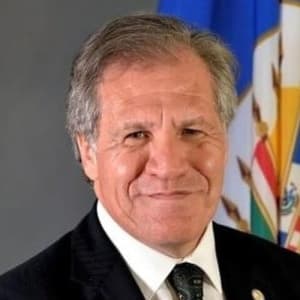
Secretary General, Organization of American States
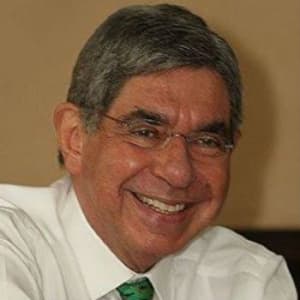
Nobel Prize Laureate, former President
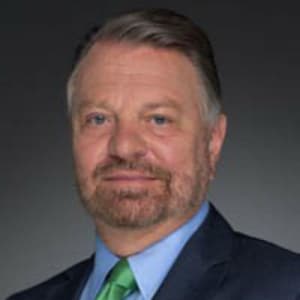
Former Minister of Foreign Affairs
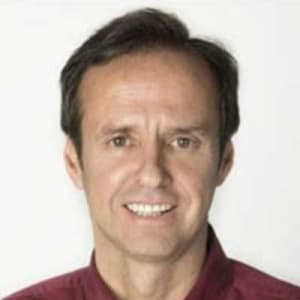
Former President
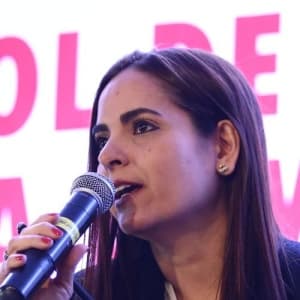
Human rights defense attorney
The 21st Annual Forum 2000 Conference, entitled “Strengthening Democracy in Uncertain Times”, was held in Prague from 8 to 10 October 2017. As in previous years, the Forum 2000’s Democratic Solidarity project and the topics of democracy and human rights in Latin America formed integral parts of the discussion. The alarming undemocratic procedures taking place in Venezuela and other countries in the region were analyzed and discussed by Luis Almagro, the General Secretary of the Organization of the American States (OAS), Felipe González, the former Prime Minister of Spain or Jorge Quiroga, the former President of Bolivia, among others.
The program included three public events and three internal meetings. The panel “Do Latin-Americans Trust Their Institutions?” was organized in cooperation with CASLA Institute and focused on the fact that Latin American democratic institutions are still weak despite region-wide efforts to strengthen them. Secretary General of the OAS, Luis Almagro, emphasized that politics must be closer to the citizens, in particular to women and the younger population, because the consolidation of democracies in the region depend on their participation. Liberties and rights must be defended, institutions must be amended to be efficient, and basic services should be accessible to the whole population. Felipe González noted that democracy enables citizens to choose their representatives, but it also grants them the possibility of voting out those who do not govern as expected. As the remarks by Jorge Quiroga indicated, the following months for the region are key in order to understand the future of Latin America in terms of democratic consolidation, in particular the upcoming elections in Mexico, Colombia, Brazil, and Venezuela. Finally, it was agreed that Venezuela’s situation must not be disregarded, given the extent of humanitarian catastrophe and the amount of democratic values being shattering. You can watch the whole video recording of the panel here.
The second public panel, entitled “Elections Landscape in Latin America,” organized in cooperation with Fundación para el Progreso, dealt with the importance of the upcoming months for the whole region, given that most democratic processes are to be held in the next 15 months. The panel touched upon the electoral cases of the non-democratic as well democratic regimes in the region. Cuban writer and essayist Ileana Álvarez described the situation in Cuba, explaining that future elections cannot be considered truly democratic since the communist party controls all voting from the local level to the top of government and that, in this context, women have even more difficult access to politics because of the hegemonic-patriarchal political culture. Mauricio Rojas explained the current and future panorama for Chile, especially in light of the presidential elections taking place later on this year. Miriam Kornblith from the National Endowment for Democracy remarked on the importance of the advances of positive democratic consolidation. Democratic mechanisms are broadly utilized and help the population elect government officials, but there is still democratic manipulation in the region, such as in Bolivia. As explained by José Manuel Ormachea: Evo Morales has ignored and out-ruled democratic processes to allow for transition, thus perpetuating his rule in the country. Institutions must be defended and protected from any kind of manipulation of those in power. Watch and listen to what the speakers had to say here.
The third public event was dedicated to the screening of the film To End a War (directed by Marc Silver), which documents the processes behind the peace accords in Colombia and all the parties involved. The screening was followed by a discussion, moderated by Professor Josef Opatrný, featuring José Antequera Guzmán, Nobel Peace Prize Nominee from Colombia, and Jaime Alberto Cabal Sanclemente, the Ambassador of Colombia to Austria. The topic of the peace process was presented to the public in order to get the audience acquainted with the recent developments of the Colombian process.
Following the previous editions of the internal workshops of Democratic Solidarity that focused on the issues of education and leadership, the panelists and audience discussed “Civic Participation in Latin America.” Three experts and activists from Cuba and Colombia elaborated on the essential aspects of civic activism in Latin America. A number of recommendations were generated as an outcome of the meeting. The workshop was preceded by an organizational meeting of the members and supporters of the Democratic Solidarity initiative, where further development of the project was discussed. A third edition of the Democratic Solidarity Conference was planned for May 2018 in Santiago de Chile.